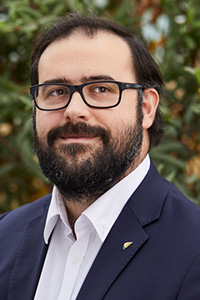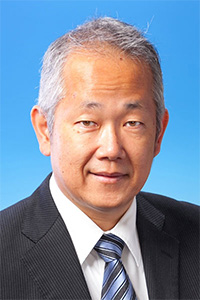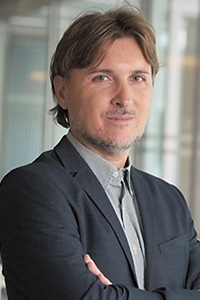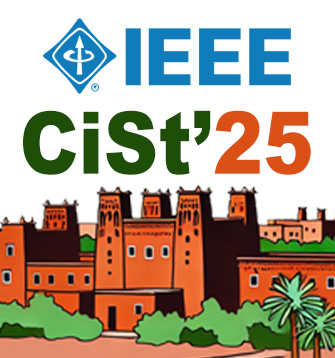Keynote Speakers

Prof. Dr.-Ing. Roberto CalandraTechnische Universität Dresden
Deep-Reinforcement Learning and Dynamic Models
Roberto Calandra is Full (W3) Professor at TU Dresden where he leads the Learning, Adaptive Systems and Robotics (LASR) lab. Previously, he was a Research Scientist at Meta AI (formerly know as Facebook AI Research), where he founded the Robotic Lab in Menlo Park, California. He was also a Postdoctoral Scholar at the University of California, Berkeley (US) in the Berkeley Artificial Intelligence Research Laboratory (BAIR) working with Sergey Levine. His education includes a Ph.D. from TU Darmstadt (Germany), a M.Sc. in Machine Learning and Data Mining from the Aalto university (Finland), and a B.Sc. in Computer Science from the Università degli studi di Palermo (Italy). His scientific interests are broadly at the conjunction of Robotics and Machine Learning, with the goal of making robots more intelligent and useful in the real world. Among his contributions is the design and commercialization of DIGIT -- the first high-resolution compact tactile sensor commercially available, which is currently the most widely used tactile sensor in robotics. Roberto served as Program Chair for AISTATS 2020, as Guest Editor for the JMLR Special Issue on Bayesian Optimization, and has previously co-organized over 16 international workshops (including at NeurIPS, ICML, ICLR, ICRA, IROS, RSS).
Roberto Calandra is Full (W3) Professor at TU Dresden where he leads the Learning, Adaptive Systems and Robotics (LASR) lab. Previously, he was a Research Scientist at Meta AI (formerly know as Facebook AI Research), where he founded the Robotic Lab in Menlo Park, California. He was also a Postdoctoral Scholar at the University of California, Berkeley (US) in the Berkeley Artificial Intelligence Research Laboratory (BAIR) working with Sergey Levine. His education includes a Ph.D. from TU Darmstadt (Germany), a M.Sc. in Machine Learning and Data Mining from the Aalto university (Finland), and a B.Sc. in Computer Science from the Università degli studi di Palermo (Italy). His scientific interests are broadly at the conjunction of Robotics and Machine Learning, with the goal of making robots more intelligent and useful in the real world. Among his contributions is the design and commercialization of DIGIT -- the first high-resolution compact tactile sensor commercially available, which is currently the most widely used tactile sensor in robotics. Roberto served as Program Chair for AISTATS 2020, as Guest Editor for the JMLR Special Issue on Bayesian Optimization, and has previously co-organized over 16 international workshops (including at NeurIPS, ICML, ICLR, ICRA, IROS, RSS).

Kohei Shiomoto, Ph.DFaculty of Information Technology, Tokyo City University
Reinforcement Learning Applications and Data-Driven Network Management
Kohei Shiomoto is a Professor, Tokyo City University, Tokyo Japan. Since joining NTT Laboratories in 1989, he has been engaged in research and development in the data communications industry on high-speed computer network architecture, traffic management, and network analysis to create innovative technologies for the Internet, mobile, and cloud computing. From 1996 to 1997, he was a visiting scholar at Washington University in St. Louis, MO, USA. In 2017, he joined Tokyo City University to engage in research and education on data science and computer networking. Current research interests include data mining for network management, human flow analysis, cloud computing and blockchain. He has published more than 70 academic papers, 130 refereed international conference papers, and 6 RFCs in IETF. He served as Guest Co-Editor for a series of special issues established in IEEE Transactions on Network and Service Management. He has served in various roles organizing IEEE ComSoc conferences including IEEE NOMS, IEEE IM, and IEEE NetSoft. He served as the lead Series editor for the Network Softwarization and Management Series in IEEE Communications Magazine, 2018-2021. He is a Fellow of the Institute of Electronics, Information and Communication Engineers (IEICE), a Senior Member of the IEEE, and a member of the ACM and the Information Processing Society of Japan (IPSJ).
Kohei Shiomoto is a Professor, Tokyo City University, Tokyo Japan. Since joining NTT Laboratories in 1989, he has been engaged in research and development in the data communications industry on high-speed computer network architecture, traffic management, and network analysis to create innovative technologies for the Internet, mobile, and cloud computing. From 1996 to 1997, he was a visiting scholar at Washington University in St. Louis, MO, USA. In 2017, he joined Tokyo City University to engage in research and education on data science and computer networking. Current research interests include data mining for network management, human flow analysis, cloud computing and blockchain. He has published more than 70 academic papers, 130 refereed international conference papers, and 6 RFCs in IETF. He served as Guest Co-Editor for a series of special issues established in IEEE Transactions on Network and Service Management. He has served in various roles organizing IEEE ComSoc conferences including IEEE NOMS, IEEE IM, and IEEE NetSoft. He served as the lead Series editor for the Network Softwarization and Management Series in IEEE Communications Magazine, 2018-2021. He is a Fellow of the Institute of Electronics, Information and Communication Engineers (IEICE), a Senior Member of the IEEE, and a member of the ACM and the Information Processing Society of Japan (IPSJ).

Prof. Francesco FlamminiMälardalen University, Sweden
Digital Twins Trustworthy Autonomy
Francesco Flammini graduated cum laude (M.D., 2003) and got a research doctorate (PhD, 2006), both in Computer Engineering, from the University of Naples Federico II, Italy. He has worked for 15 years in private and public companies, including Ansaldo STS (now Hitachi Rail) and IPZS (Italian State Mint and Polygraphic Institute), on large international projects addressing intelligent transportation, critical infrastructure protection and cybersecurity, as a technical leader and unit head. Since 2020, he has been a Full Professor of Computer Science with a focus on Cyber-Physical Systems at Mälardalen University (Sweden), and the Technical Manager of the RAILS EU funded research project about Artificial Intelligence for smart-railways. He is also a Professor of Trustworthy Autonomous Systems at the University of Applied Sciences and Arts of Southern Switzerland, where he is affiliated with Dalle Molle Institute for Artificial Intelligence (IDSIA). Previously, he has been a Senior Lecturer and the chair of the Cyber-Physical Systems (CPS) environment at Linnaeus University (Sweden). He is a Senior Member of the IEEE and a Member-at-Large of the IEEE SMC Board of Governors. He has (co)authored 150+ technical publications, and he has served as a chair, invited speaker, steering/program committee member, and editor for several international conferences and journals.
Francesco Flammini graduated cum laude (M.D., 2003) and got a research doctorate (PhD, 2006), both in Computer Engineering, from the University of Naples Federico II, Italy. He has worked for 15 years in private and public companies, including Ansaldo STS (now Hitachi Rail) and IPZS (Italian State Mint and Polygraphic Institute), on large international projects addressing intelligent transportation, critical infrastructure protection and cybersecurity, as a technical leader and unit head. Since 2020, he has been a Full Professor of Computer Science with a focus on Cyber-Physical Systems at Mälardalen University (Sweden), and the Technical Manager of the RAILS EU funded research project about Artificial Intelligence for smart-railways. He is also a Professor of Trustworthy Autonomous Systems at the University of Applied Sciences and Arts of Southern Switzerland, where he is affiliated with Dalle Molle Institute for Artificial Intelligence (IDSIA). Previously, he has been a Senior Lecturer and the chair of the Cyber-Physical Systems (CPS) environment at Linnaeus University (Sweden). He is a Senior Member of the IEEE and a Member-at-Large of the IEEE SMC Board of Governors. He has (co)authored 150+ technical publications, and he has served as a chair, invited speaker, steering/program committee member, and editor for several international conferences and journals.
